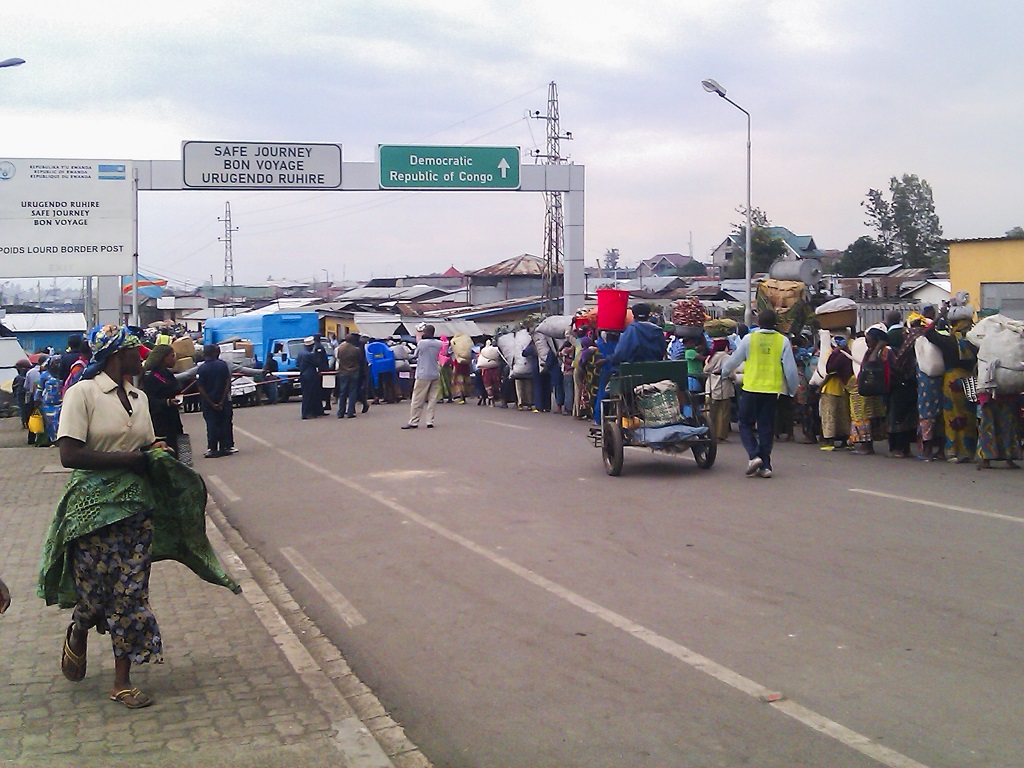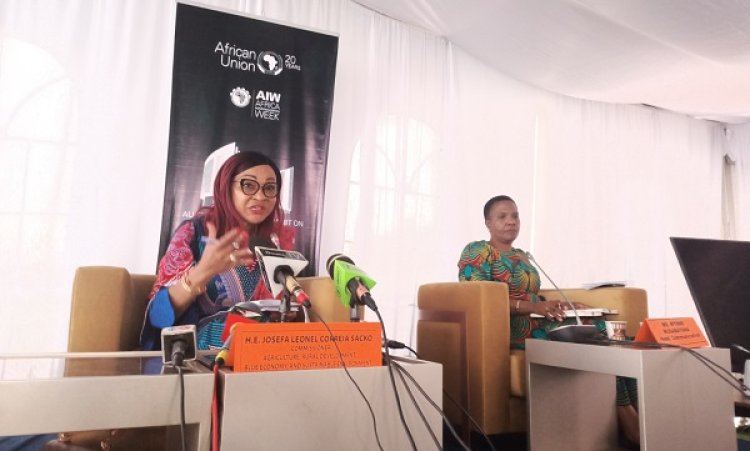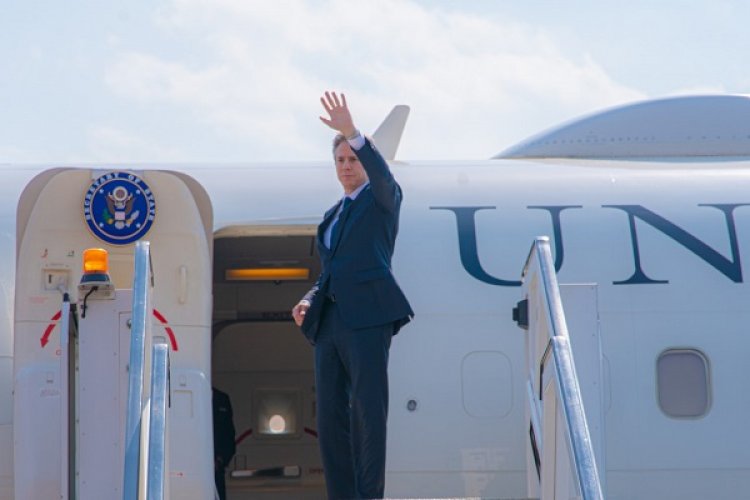There had been not much trade activity happening a year after trading under AfCFTA officially started on January 1, 2021.
However, it was seen swiftly changing soon after the world had the Covid-19 pandemic lull and its subsequent end as a global health emergency, coupled with the momentum gained as more countries joined trading in goods and services under the agreement that seeks to create 1.3 billion people market when fully operational.
AfCFTA promises to end imbalances that have for decades seen Africa’s economies work to meet the labour and material needs of Western industrialisation and development at the expense of development of millions population locally.
At least eight of the 46 countries that so far ratified the continental trade agreement have been trading under the Guided Trade Initiative, a program started in July 2022 to attend to issues that still held trading back, such as lack of capacity and concerns over loss of tariff revenues.
According to the AfCFTA Secretariat, the initiative, which Rwanda, Ghana, Cameroon, Egypt, Tanzania, Tunisia, Mauritius and Kenya so far joined, involves matchmaking businesses and products for export and import between interested State parties.
AfCFTA Secretary General Wamkele Mene, however, said that it is still early to gauge the performance in terms of trade volumes, but pointed to a rise in interest by companies and individual traders to take goods and services beyond borders in what continues to boost intra-Africa trade in a wide range of made-in-Africa products.
“The state of readiness across the continent to implement the agreement is uneven. Some countries will need more time to build the industrial base for export so that they can see the benefits. So that’s going to take time,” Mr. Mene, said in an interview held as part of this story project.
Mr. Mene indicated that it could take six up to 10 years before the Secretariat can make an assessment of trading volumes.
“So far we don’t know yet, and I don’t think that anybody around the world would be in a position to make that assessment of a trade agreement that is less than five years. It wouldn’t be a reliable indicator,” he said.
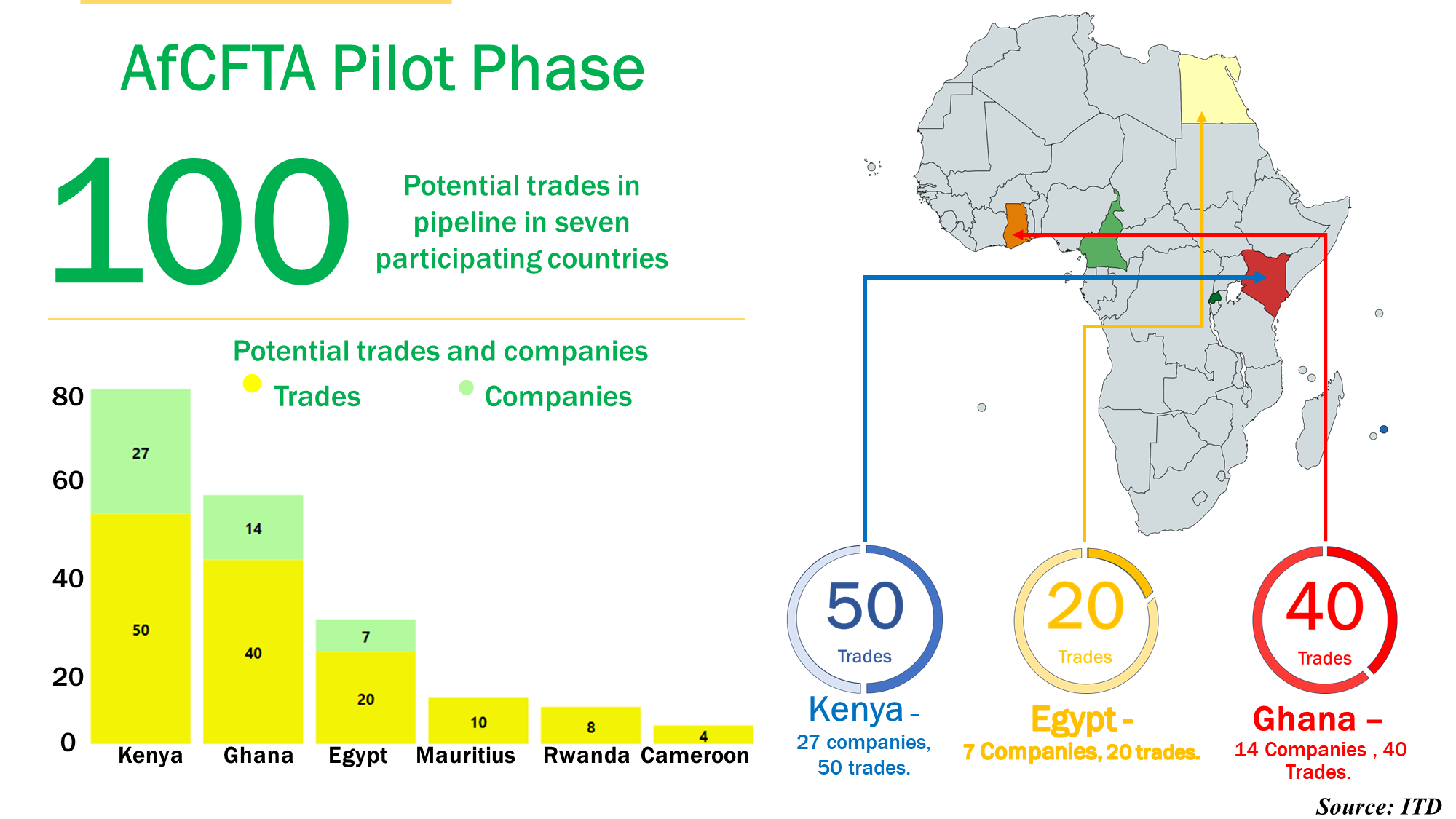
Things like processed meat products, ceramic tiles, batteries, tea and coffee are some of the products so far being traded the most under the preferential rules of the AfCFTA. The Secretariat expects more countries and businesses to jump on the bandwagon to leverage preferential treatment that see their products bypass custom barriers and enjoy reduced tariffs.
The benefits of trading under AfCFTA go beyond just tariff reductions because the agreement equally addresses issues of competition, investment and intellectual property rights.
Also read: AfCFTA brings boon to youth and women, but call for changes to unlock full potential
Deadlock
But beside capacity issues at country levels, those trading grapple with a much bigger problem arising from the fact that trade under AfCFTA officially kicked off before Governments on the continent could iron out issues pertaining to free movement of people, labour migration and liberalization of airspace, which experts say equally needed attention for meaningful intra-continental trade to materialize.
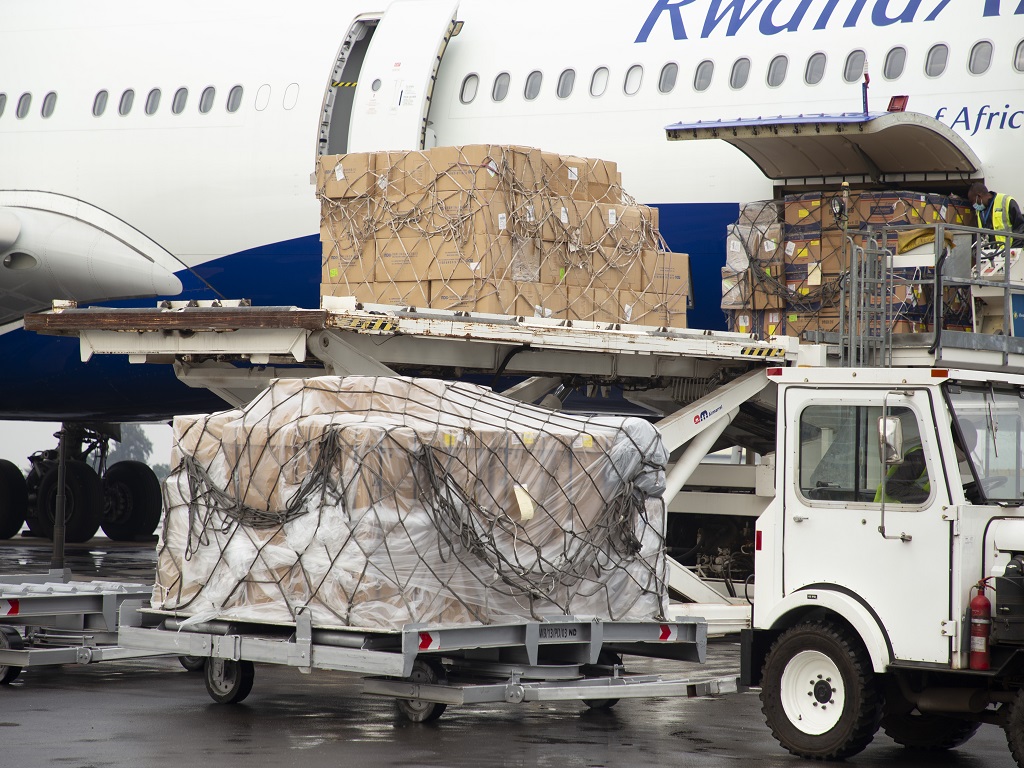
For instance, while business operators indicate that the new modalities of trade necessitate that firms establish outlets within countries where they find market, this could not happen amid lack of free movement of people and right of residence or establishment.
A worker in the logistics sub-sector who spoke to NewsPaper Africa indicates, for instance, that extending their services to other countries requires that they possess the work permit to enter the target market, or to register an outlet under protectionist domestic laws that treat non-citizens from Africa as foreigners.
With AfCFTA, Governments should enforce mutual recognition of licensed professionals to provide services beyond borders, the source said.
These issues arise from the fact that there continues to be lack of progress with regard to ratification of the 2018 instrument on free movement of people, right of residence and right of establishment even after AfCFTA entered into force on May 30, 2019 and now inches closer to universal ratification by AU member States.
The free movement of people protocol so far got only four ratifications of at least 15 that are required for it to enter into force.
Also read: AfCFTA story good, but hard to sell without free movement
However, since the enactment of the AfCFTA, a number of countries have eased their visa regimes towards fellow Africans through both unilateral and bilateral arrangements within and beyond blocs, a move hailed as likely to ease the burden on traders.
At least a dozen of African countries including Ghana, Nigeria, Kenya, Rwanda and Ethiopia now offer visa on arrival for Africans.
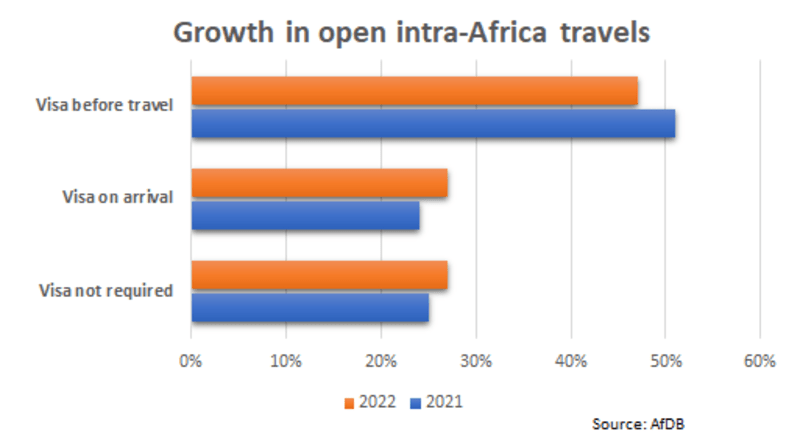
According to the AfCFTA Secretariat, this signals a step in the right direction as efforts are underway to seek States’ action on these important instruments, including one on liberalisation of airspace to ease movement of cargo.
In a recent development on August 1, Ethiopian Airlines announced discount cargo charges on all Africa bound cargo under AfCFTA. Leaders and economic players lauded the move as a boost to intra-continental trade by the airline that boast over 60 destinations in Africa.
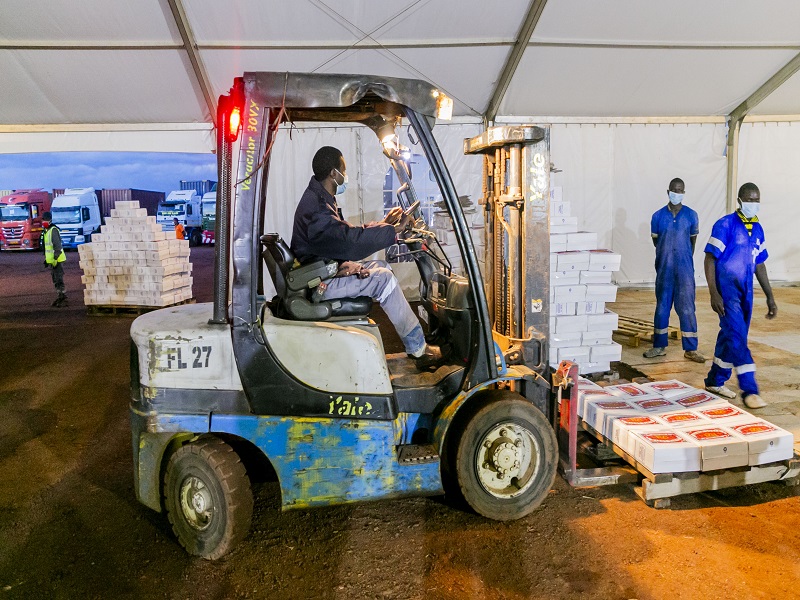
Also read: Ready for intra-Africa air travel via Asia, Europe in 2023?
Analysts say that going forward, eyes will be on Governments in countries that ratified the AfCFTA to also unlock the free movement of people deadlock through ease of border entry measures for categories such as business people including investors and cargo transporters, freight forwarders and clearing agents; students and tour operators, among others that are key to free trade.
Amanda Bisong, Policy officer at European Centre for Development Policy Management (ECDPM) and Centre for AU-Europe relations team, argues that already a number of governments have increasingly undertaken steps that are in line with the free movement protocol between countries, either unilaterally or within different blocs.
“This is why there is need for them to ratify the free movement protocol to lock in these changes that they are making. Otherwise, unilateral changes can be removed tomorrow by a different government. Bilateral agreements can also change over the years but when you have it locked in the free movement protocol, then we know that we’re seeing progress,” she said.
According to the African Union Commission (AUC) series of stakeholder meetings involving all regional groupings of African States (RECs) and AfCFTA secretariat have been held to come up with action points with regards to both the Single African Air Transport Market (SAATM) project, and the protocol on free movement of people, right of residence and right of establishment.
“As the AUC we are advocating for open skies and less expensive means of transport. For instance, we’ve been working on the African Passport which is an agreed project of the African Union, and then we wait for the member States to roll it out, but advocacy is nonstop,” Ambassador Rosette Nyirinkindi, Special Advisor to the AU Chairperson on regional integration told NewsPaper Africa.
As the AUC we are advocating for open skies and less expensive means of transport. For instance, we’ve been working on the African Passport which is an agreed project of the African Union.
Ambassador Rosette Nyirinkindi, Special Advisor to the AU Chairperson on regional integration
Economists concur that Africa’s success resides in operating as single entity with common trade rules, common investment rules, movement of people and transport connectivity because then it [Africa] becomes a market large enough to attract investors from across the world, and a vehicle for industrialization.
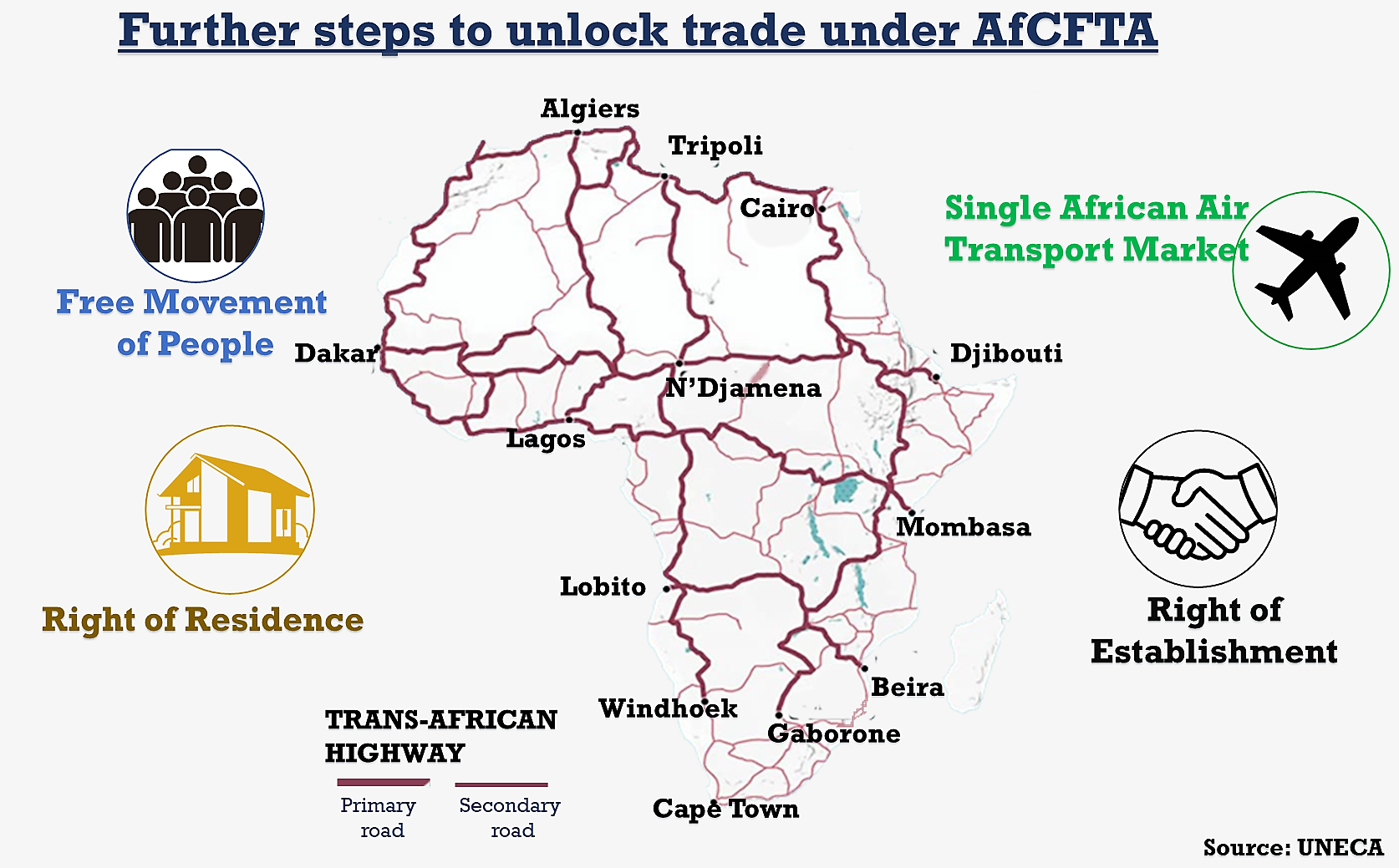
In Mr. Wamkele Mene’s view, the “AfCFTA is Africa’s last opportunity to integrate our market to make sure that that we as a continent become as globally competitive as any part of the world.”
He indicates that over the last five to six decades, the character of Africa’s economy has been one of fragmentation of markets, smallness of national economies, 42 currencies and an overreliance on the export of primary unprocessed commodities.
These factors are, in part, the reason intra-Africa trade is as low as 18 per cent, the lowest of any region of the world.
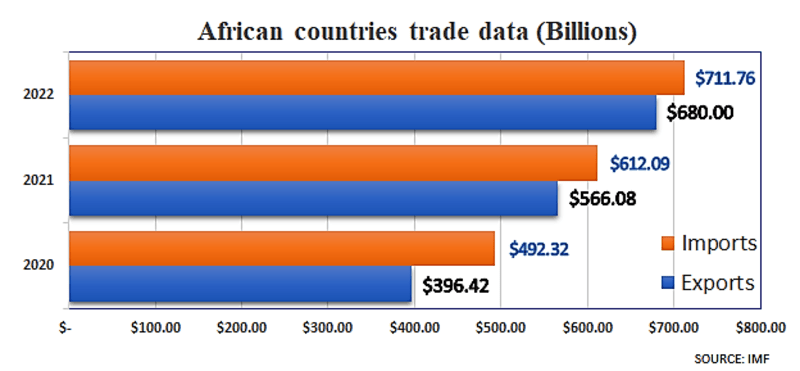
AfCFTA prmises to create a market of 1.3 billion people with a combined GDP of around $3 trillion projected to more than double by 2035, according to the AU.
In the book How Africa Trades (2023), David Luke et.al indicate that 22 of the 55 African countries have populations under 10 million and a further 22 have populations under 30 million.
The total population of Africa is expected to grow to 2.75 billion by 2060, with an increasing middle-class market and a combined annual output of $16 trillion.
“The enormous size of the collective African market is seen to be valuable in attracting investors and achieving competitive economies of scale,” the authors indicated.
A 2023 African Trade Report by Africa Import Export Bank indicates implementation AfCFTA has given a boost to intra-African trade last year. The value reached $193.17 billion, growing by 18.6 per cent in 2022.
“AfCFTA is clearly set to redefine Africa’s economic fortunes for the future. It represents a significant milestone in the journey towards addressing Africa’s trade imbalance, and is best economic recovery tool for the continent,” the bank’s report pointed out.
~ Data visualization by Jesse Mwatsama
———
This publication is made possible by the AU Media Fellowship program, which is implemented by the African Union (AU) through the Information and Communication Directorate, supported by Deutsche Gesellschaft für Internationale Zusammenarbeit (GIZ) on behalf of the German Federal Ministry for Economic Cooperation and Development (BMZ). Views and opinions expressed are however those of the author(s) only and do not necessarily reflect those of GIZ or the African Union.

